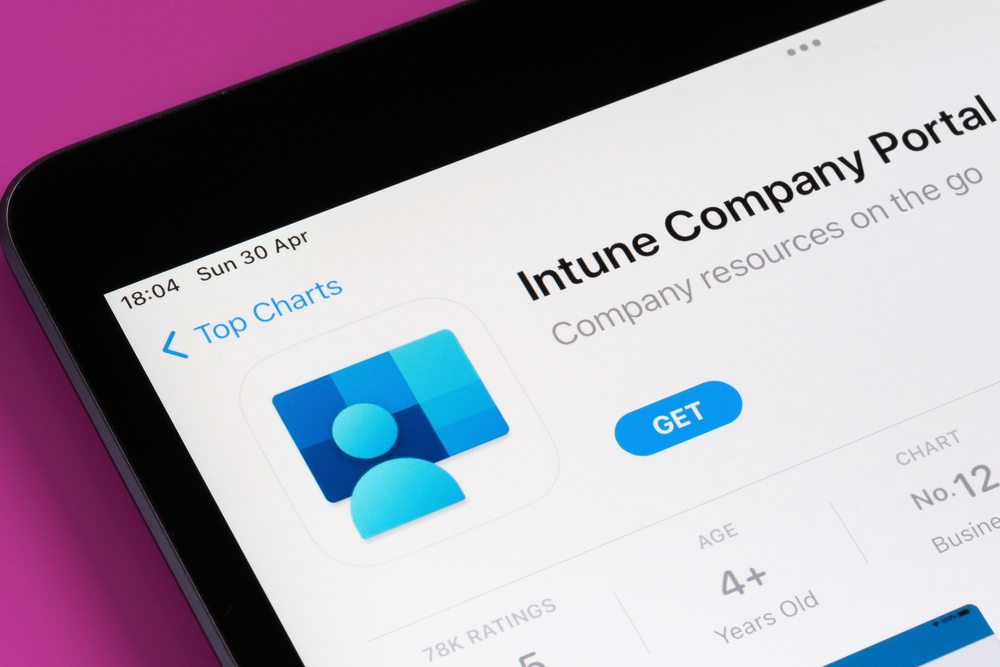
As organisations increasingly rely on a myriad of devices and software to run their operations efficiently, the need to streamline management, bolster security, and maintain compliance has never been more critical. The effective management of devices and applications has become nothing short of paramount for UK businesses.
Enter Intune Management – a powerful solution designed to tackle these challenges head-on. In this article, we’ll delve into the world of Intune Management, exploring its capabilities, benefits, and how it can revolutionise the way businesses handle their devices and applications. Join us on this journey as we unlock the secrets to smoother operations and enhanced security in the digital realm.
Understanding Intune Management
Defining Intune Management
At the heart of efficient device and application management in the modern UK business ecosystem lies Microsoft Intune. This robust solution is purpose-built to address the complexities that arise in managing devices and applications across an organisation. Microsoft Intune provides a centralised platform for managing, securing, and maintaining various devices and applications, ensuring a seamless and secure digital environment.
Simplifying Device and Application Management
Intune Management stands as a beacon of simplicity amidst the complexity of device and application management. It empowers businesses by offering a unified and user-friendly interface for overseeing a wide array of devices, spanning from smartphones and tablets to PCs and Macs. Furthermore, it extends its capabilities to manage applications, making it easier than ever to deploy, update, and troubleshoot software across the organisation.
The Cloud-Based Advantage
One of the hallmark features of Intune Management is its cloud-based architecture. Leveraging the power of the cloud, Intune streamlines the management process by eliminating the need for on-premises servers and infrastructure. This means that businesses can leverage the solution’s full potential without the burden of managing complex hardware. Additionally, Intune’s integration with Microsoft 365 creates a seamless ecosystem where device and application management seamlessly complement other productivity tools, offering a holistic approach to digital workplace management.
As we delve deeper into Intune Management, we’ll explore its key features, benefits, and the transformative impact it can have on businesses of all sizes.
Key Features and Benefits of Intune Management
Ensuring Data Security and Protection
Now more than ever, data security stands as a paramount concern for businesses. Intune Management takes this concern head-on by offering a robust set of security features. It helps organisations safeguard sensitive information by enabling data encryption, enforcing strong password policies, and facilitating remote wipe capabilities in case a device is lost or stolen. Intune also provides threat detection and protection, shielding devices from malware, phishing attempts, and other cyber threats. This proactive approach to security ensures that your organisation’s data remains confidential and protected from evolving threats.

Empowering Remote Device Management
The modern workforce is increasingly mobile and remote, making the ability to manage devices from afar a crucial requirement. Intune Management rises to this challenge by offering remote management capabilities that are essential in today’s business landscape. IT administrators can remotely configure, update, and troubleshoot devices, regardless of their location. This ensures that employees can stay productive, and devices can remain secure and up to date, even when they’re not physically in the office. With Intune, businesses gain the flexibility to adapt to the evolving demands of remote work seamlessly.
Compliance and Policy Enforcement
For businesses, adhering to corporate policies and regulatory requirements is non-negotiable. Intune Management simplifies compliance and policy enforcement by offering granular control over device and application settings. Organisations can define and enforce policies related to data protection, access control, and application usage. This ensures that devices and applications remain in line with internal policies and external regulations, reducing the risk of compliance breaches. Intune’s reporting and auditing capabilities also help businesses maintain a transparent record of their compliance efforts.
By harnessing the security, remote management, and compliance features of Intune Management, organisations can fortify their digital infrastructure, bolster productivity, and navigate the complex landscape of regulatory compliance with confidence.
Considerations for Implementing Intune Management
Acknowledging Potential Challenges
While Intune Management offers a wealth of benefits, it’s important to acknowledge that implementing such a comprehensive solution can present challenges. One of the primary considerations is the complexity and learning curve associated with Intune. As with any powerful tool, it may take time for IT teams to become proficient in its use. Adequate training and resources should be allocated to ensure a smooth transition to Intune Management.
Highlighting Compatibility
Compatibility is a key factor to consider when implementing Intune Management. Organisations in the UK and anywhere in the world typically have a mix of devices and applications in their ecosystem, and ensuring that Intune can effectively manage and secure this diverse landscape is crucial. Compatibility issues can arise when dealing with legacy systems or specialised software, so a thorough assessment of your existing infrastructure is essential. Additionally, it’s important to stay informed about updates and changes in Intune to ensure ongoing compatibility with evolving technologies.
Budget Considerations
Implementing Intune Management involves financial considerations, and while the benefits often outweigh the costs, it’s important to manage your budget effectively. Licensing costs, training expenses, and any necessary hardware upgrades should be factored into the budgeting process. To optimise your investment, consider consulting with experts who can help you identify cost-saving opportunities and ensure that you’re getting the most value out of your Intune deployment.
By addressing these considerations thoughtfully and proactively, businesses can navigate the challenges associated with Intune Management implementation, ultimately ensuring a successful and efficient adoption of this powerful tool.
Best Practices for Successful Intune Management
Implementing Intune Management is not just about installing software; it’s a strategic decision that can significantly impact your organisation’s productivity, security, and compliance. To ensure a successful deployment and maximise the benefits, consider the following best practices:
- Comprehensive Planning: Begin with a thorough assessment of your organisation’s needs, existing infrastructure, and goals. Define clear objectives and policies that Intune Management will help you achieve.
- Pilot Deployment: Before rolling out Intune across your entire organisation, conduct a pilot deployment on a smaller scale. This allows you to identify and address any issues or challenges specific to your organisation’s setup.
- User Training: Provide comprehensive training for end-users and IT administrators. A well-trained workforce can leverage Intune’s features effectively, reducing the likelihood of errors and issues.
- Customised Policies: Tailor Intune’s policies to your organisation’s specific requirements. This ensures that security and compliance measures align with your business processes and objectives.
- Automated Updates: Enable automated updates for devices and applications. Keeping software up to date is crucial for security and performance.
- Regular Monitoring and Reporting: Continuously monitor the performance and security of devices and applications. Utilise Intune’s reporting capabilities to gain insights into your environment and make informed decisions.
- Feedback and Adaptation: Encourage feedback from end-users and IT teams. Use this feedback to fine-tune policies and configurations, making the Intune experience more seamless.
- Stay Informed: Stay up to date with Intune updates and enhancements. Microsoft regularly releases updates to improve functionality and security, so it’s important to leverage these improvements as they become available.
- Scalability: Plan for scalability as your organisation grows. Ensure that your Intune setup can accommodate an expanding number of devices and users.
- Consult with Experts: Consider consulting with Intune experts or Microsoft Certified Partners for assistance with planning, deployment, and ongoing management. Their expertise can help you navigate complex scenarios and ensure a successful implementation.
Leveraging Professional Consulting Services for Intune Management
Implementing Intune Management is a multifaceted endeavour, and while it offers numerous benefits, organisations often benefit greatly from enlisting the expertise of professional consulting services. Here at London based Proxar IT Consulting, we offer dedicated Intune Management Consulting Services.
Our experienced consultants offer a deep understanding of Intune Management, derived from hands-on experience and ongoing training. Their familiarity with the intricacies of the platform allows them to efficiently navigate complex configurations and troubleshoot issues, ultimately leading to a smoother deployment.
After kick starting the process with a comprehensive assessment of your organisation’s unique needs, existing infrastructure, and overarching objectives, we create a tailored Intune Management strategy, helping you align your specific goals with the capabilities of the Intune platform. Following this, we stay close at hand to offer guidance and support throughout the implementation phase. We configure Intune to meet your precise requirements, ensuring that the platform aligns seamlessly with your organisation’s workflow and policies.
Of course, our professional consulting services extend far beyond the initial deployment. We offer ongoing support and maintenance services to keep your Intune environment operating smoothly and are readily available to address issues, fine-tune policies as your needs evolve, and ensure your organisation is continually benefiting from the latest features and security enhancements.
As a result, our clients often realise cost-saving opportunities they would otherwise have missed. Our Intune Management Consulting services can reduce unnecessary expenses and maximise your return on investment by optimising licensing, resource allocation, and usage policies.
In summary, professional consulting services provide an invaluable partnership throughout your Intune Management journey. Their expertise, combined with meticulous planning, hands-on assistance, ongoing support, and cost-conscious strategies, ensures the successful implementation and sustained effectiveness of the platform. By leveraging these consulting services, your organisation can harness the full potential of Intune Management, translating into enhanced security, efficiency, and productivity in your digital environment.
Conclusion
It’s clear that Microsoft Intune Management is a pivotal solution for modern UK businesses facing the challenges of effective device and application management. Offering data security, remote device management, and compliance enforcement benefits, it’s an obvious choice for many businesses, yet it’s important to remember that successful implementation requires careful consideration of complexity, compatibility, and budget.
Professional consulting services can lend the expertise, planning, hands-on assistance, ongoing support, and cost optimization that your organisation needs to fully harness Intune Management’s potential. To learn more about how Proxar can help, contact us today.
